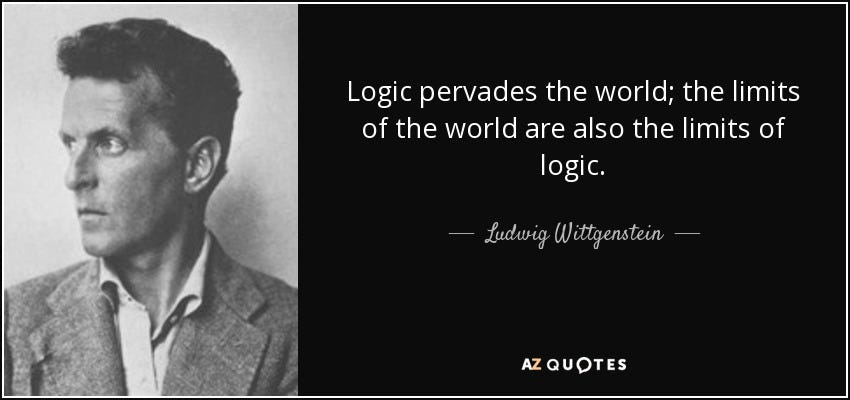Wow this is really interesting. Initially I was down somewhere on the 'chaos' side of things, but some of you have convinced me that chaos essentially exists within the terms of reference created by a fundamentally logical system. Someone mentioned the 'oppositional axis' that we're trying to define here - if logic is at one pole, what's at the other. Again though, I've been convinced by some of you that any such an axis would be a logical creation in itself, and therefore would not represent a true oppositional dichotomy.
The problem we're facing is that logic seems to be too fundamental to the functioning of the universe.
Anyway this is my contribution:
I think the question we should be asking is 'why does logic work'?
We could say that logic works because causality is a reliable principle of the universe. Cause and effect is so reliable that logic becomes a valid system of reasoning.* So here we're starting to construct a hierarchy of concepts with logic at the top.
OK then, why is causality a fundamental property of the universe? Are there any, more fundamental properties, without which causality could not function?
Yes, this property is time. Without time, and the flow of events and interactions, causality becomes meaningless.
Is there a more fundamental concept than time? Yes, existence, but we accept that existence bounds both 'logic' and our posited 'opposite of logic'. This means that 'time' is the really operant concept we need to deal with in our hierarchy of concepts.
Let's test it. If time did not exist, would causality (and therefore logic) exist? The answer is no. Causality and logic would become meaningless. We can go further, and say that actually, 'time' is just a subjective effect of causality, or that causality and time are almost indistinguishable.
This means that, if you want to answer, 'what is the opposite of logic?', I think a good answer might be 'stasis'.
Or what about this: if logic is a form of reasoning contingent on causality/time, what is the form of reasoning contingent upon stasis? Could you imagine a form of reasoning that is not only valid, but possible within stasis? I don't think so. Things would just 'be', and nothing could reason.
This, I think, shows just how fundamental logic (or, more properly, causality/time) is to our universe.
The answer then, of 'what is the opposite of logic', must be, to me, 'stasis'.
*I could also imagine a system whereby logic is valid based on other axioms, not just causality, like symmetry, so then we must try to imagine a state of existence without axioms. This would be a kind of fundamentally disorderly chaos, but again there would still be certain 'true' statements you could make about it using logical reasoning. So ultimately I think 'stasis' is close to the answer - a state of being within which reasoning is neither possible nor valid.


